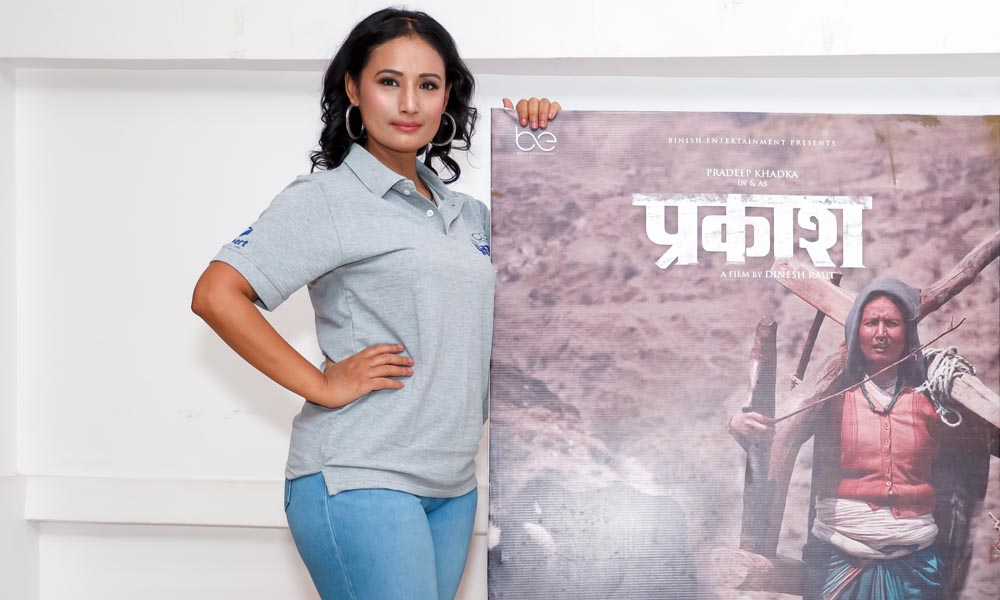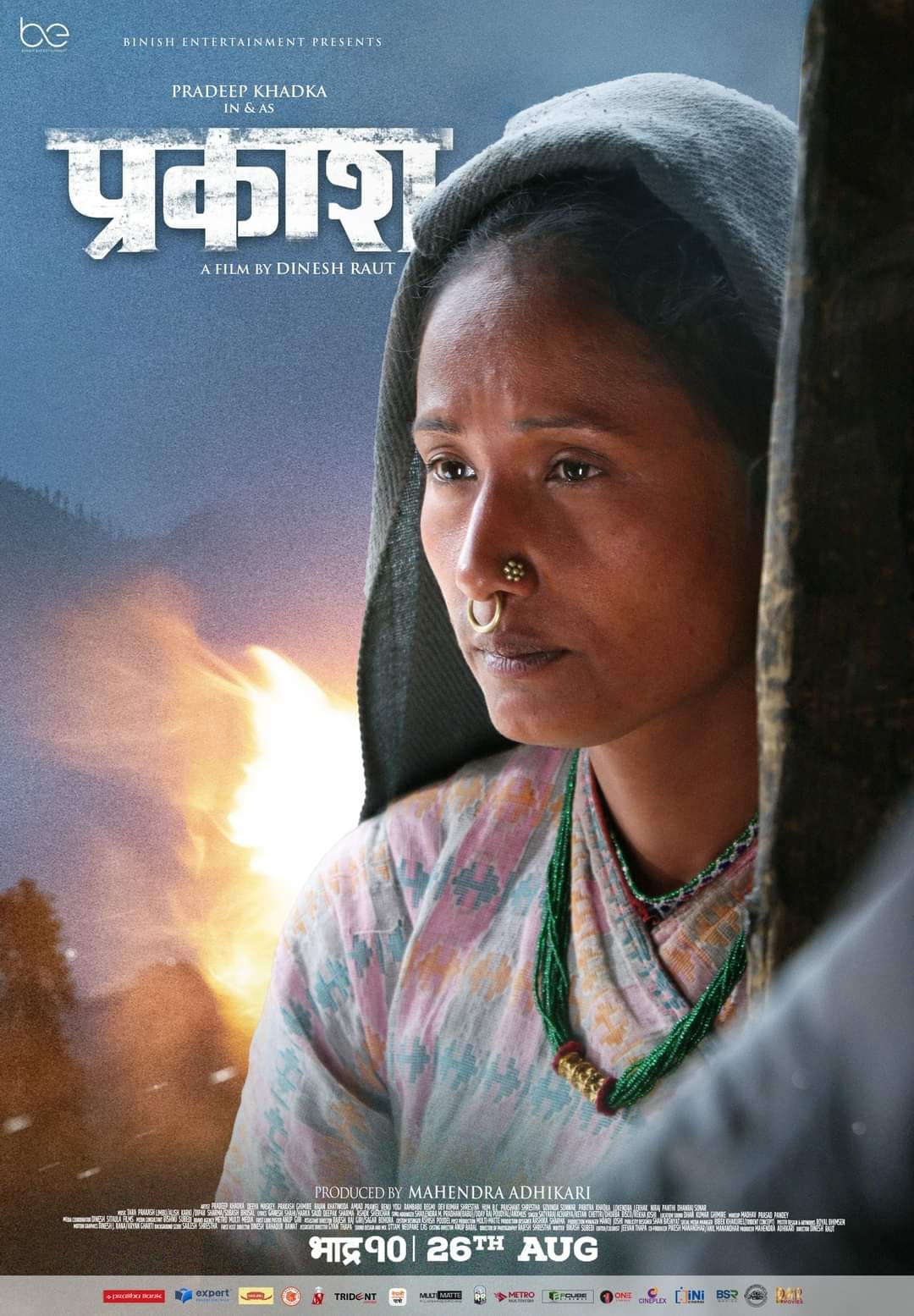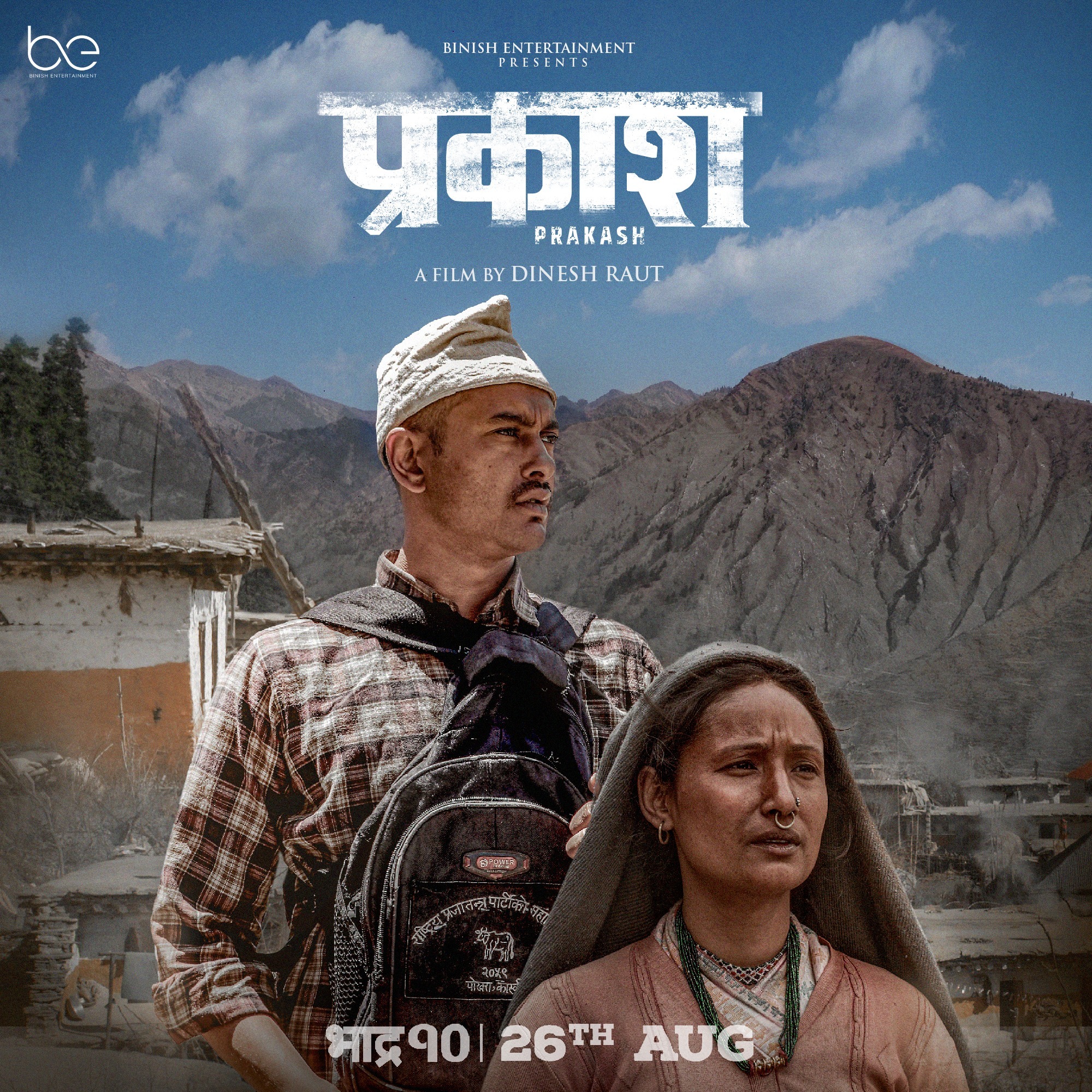0%

KATHMANDU: As the curtains over the much-awaited Nepali film “Prakash” open on August 26, audiences will see actress Deeya Maskey embracing the character of a typical woman from the remote Jumla district.
Maskey plays a character of a local Jumla woman, Sita: a village woman, leading a household in the isolated district of Nepal.
Audiences might have to slightly accustom themselves to see Maskey as Sita since they have been mostly seeing the actress in very modern looks in the reality show Roadies.
Nonetheless, Maskey has given all of herself to enliven Sita in ‘Prakash’ and is set to win audiences’ hearts through her theatrical embrace and splendid carrying of the character.
Maskey left no stone unturned to bring life to the character of Sita on the silver screen.
Though the shooting of the movie took around 45 days to complete, Maskey had stayed in the rural village of Jumla, Nepal, for more than 60 days — only to breathe in life to her character.
The character of Sita was full of challenges to Maskey, who came from an affluent family and did not have to know the hardships of life as she grew up. Moreover, it might come to the surprise of many that the actress learned to speak the native language Nepali only after she passed the School Leaving Certificate examinations.
Amid such, playing a character whose reality is in stark contrast with the actress’ own was not easy in the first place and secondly, her determination, dedication and hard work to wear the character is commendable.
Another challenging aspect of Maskey’s character is that Sita is much older in age than the actress herself, and is the mother of the character of actor Pradip Khadka in the movie.
Sita is a widow whose life’s aim is to see her son become a teacher, an educated person. She is on her own, without her man’s support, in the scene placed in the aftermath of the People’s War in Jumla.
Sita is very capable but struggles economically to provide for her son’s education and make him a teacher. Seeing the son become a teacher had also been her late husband’s desire.
“Deeya herself has learned a lot of things from Sita — from running the household as a single mother, bringing up her child to facing, keeping up with the society in a rural and remote village,” says the actress.
Having been associated with the movie at the eleventh hour, Maskey knew about the character she was about to play through the script. But she did more to understand the character not solely relying on make-up and cinematography.
By staying in the remote village longer than 15 days prior to commencing the shoot, Maskey observed and interacted with the local women extensively and fully internalized their physical traits, behavior, and habits to portray Sita’s lively character in the movie.

She adapted to the reality of the past and today’s Jumla where the story is based and the character has roots.
Maskey, like the local women of Jumla, plowed fields, and learned to carry traditional ‘Doko’, among other things, that was part and parcel of the character’s — Sita — life.
Surprisingly, to show the women of Jumla as they are, the actress abstained from washing her face, hands, neck and feet — body parts that are visible through traditional clothing — throughout the shooting period just to resemble her character. Maskey turned herself into a typical woman of Jumla who was born there, grew up there and got married, and carried on with life there only.
All such works Maskey undertook helped her to fill life into the character she was playing. Of course, during that period of hard work, the actress’ saw her naturally glowing skin crack and she experienced pain that she otherwise would not have experienced.
With time, all of her body parts grew so dry that Maskey could see herself bleed from those dry body parts.
Even after the shoot concluded, it took a while for Maskey to recover completely.
“The idea of embracing the daily life of Jumleli women popped up in my mind once I reached Jumla. I did not just want to depend on make-up only and therefore did what I could to resemble women of a rural village in Nepal,” Maskey says, adding, “Only resembling the character’s outer appearance did not justify Sita.”
She internalized the local women of Tirkhu village and Jumla Bazaar – where the shooting took place. In a matter of 45 days, she was no different than the Jumla woman and not only in terms of outer appearance only but also in terms of dialect, behavior and traits.
“I gained the inspiration to do what I did after reaching Jumla,” she says. “I had to do all that because only makeup would not have achieved portraying Sita,” she adds.
“In the course, I experienced the hardships of ordinary rural women of Nepal. Various parts of my body continued to bleed even after a year since the shooting was completed,” she explains.
And all those little things such as leg pain due to walking long distances over rough terrain, drying of visible body parts and their subsequent bleeding, among others, helped made the character more lively and realistic.
Maskey, who previously in her debut in ‘Dalan’ faced lots of difficulties, with time has grown as a theatre artist and an actor and these days, she can easily adapt to new roles and also leave the characters behind after the shoot is over.
Meanwhile, she has not stopped to give in all her best and working hard for the roles she takes up.
During the shoot of ‘Prakash’, many directors had drawn Maskey’s attention to the possibility that after ‘Prakash’, she might not get roles that are close to her real age and might only be sought for roles of characters older than her. However, Maskey doesn’t bother over such impressions.

“Whenever I take up a character, that character should come to life and not Deeya Maskey. I disappear in the movie and the character is living. My task is to take a character, embrace it and bring that character to life,” she says.
What Sita does in the movie is a reflection of the daily life of every woman in Jumla, and Maskey, in Sita’s character, should be able to do all those things that Sita could do.
Therefore, after reaching the shooting location, Maskey toiled to achieve what Sita could do: things such as plowing fields, growing crops, and smoking tobacco, among others. Maskey also attentively embraced the lifestyle aspects of Jumleli women: wore clothes like them, eat the same food eaten by them, the way they carry belongings. She tried to pin down every detail and wear them.
Maskey did all of it so that she could do justice to Sita’s character. But, at the expense of her health. After returning to Kathmandu, she suffered from health problems ranging from chest problems due to tobacco consumption to skin irritation, and bleeding from dry feet, hands, and neck, among others. It took a while for Maskey to recover 100 percent.
In spite of challenges, the actress is committed to living the character and honestly doing her job.
Maskey wanted it to be real when audiences see her as Sita. Her performance should be believable and a good match. Sita should come to the fore and Maskey ought to disappear within Sita. Because of these reasons, Maskey did everything that Sita could do and brought the character to life.
“I am always working hard to bring the character to life and not just act the character,” she says. Maskey wants audiences to note her performance and feels that her performance should be not felt out of place.
Maskey also appreciates the efforts of producers like Mahendra Adhikari’s courage to bring to the fore an original story in an original manner.
Dinesh Raut’s directorial style also made it easy for Maskey to work in ‘Prakash’.
“We have many of our original stories that are waiting to be discovered. If a producer comes ahead and invests, then such stories could reach a large audience through the screen,” Maseky says.
Manoj Joshi produced Prakash stars Maskey and Pradip Khadka along with Renu Yogi, Prakash Ghimire, Niraj Panthi, Govinda Sunuwar, Rambabu Regmi, Lokendra Lekhak, Dipendra Shahi and others.